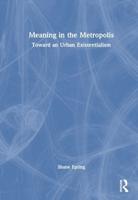Publisher's Synopsis
The philosopher desires death-which the wicked world will insinuate that he also deserves: and perhaps he does, but not in any sense which they are capable of understanding. Enough of them: the real question is, What is the nature of that death which he desires? Death is the separation of soul and body-and the philosopher desires such a separation. He would like to be freed from the dominion of bodily pleasures and of the senses, which are always perturbing his mental vision. He wants to get rid of eyes and ears, and with the light of the mind only to behold the light of truth. All the evils and impurities and necessities of men come from the body. And death separates him from these corruptions, which in life he cannot wholly lay aside. Why then should he repine when the hour of separation arrives? Why, if he is dead while he lives, should he fear that other death, through which alone he can behold wisdom in her purity?Besides, the philosopher has notions of good and evil unlike those of other men. For they are courageous because they are afraid of greater dangers, and temperate because they desire greater pleasures. But he disdains this balancing of pleasures and pains, which is the exchange of commerce and not of virtue. All the virtues, including wisdom, are regarded by him only as purifications of the soul. And this was the meaning of the founders of the mysteries when they said, 'Many are the wand-bearers but few are the mystics.' (Compare Matt. xxii.: 'Many are called but few are chosen.') And in the hope that he is one of these mystics, Socrates is now departing. This is his answer to any one who charges him with indifference at the prospect of leaving the gods and his friends.Still, a fear is expressed that the soul upon leaving the body may vanish away like smoke or air. Socrates in answer appeals first of all to the old Orphic tradition that the souls of the dead are in the world below, and that the living come from them. This he attempts to found on a philosophical assumption that all opposites-e.g. less, greater; weaker, stronger; sleeping, waking; life, death-are generated out of each other. Nor can the process of generation be only a passage from living to dying, for then all would end in death. The perpetual sleeper (Endymion) would be no longer distinguished from the rest of mankind. The circle of nature is not complete unless the living come from the dead as well as pass to them.










